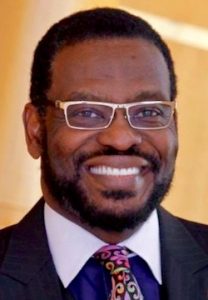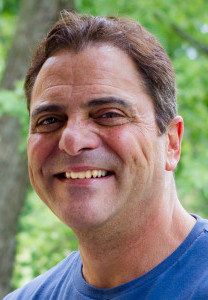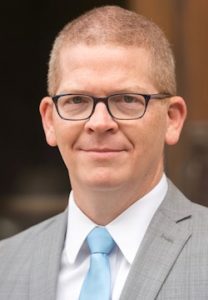Despite Backing of White House Faith Advisors, Prison Reform Bill Faces Uncertain Future
The modest prison reforms in the First Step Act—including unshackling pregnant women—have broad coalition support. Yet the prison reform bill seems a fading priority with midterm elections looming.
Late last week, President Donald Trump agreed with Senate leaders to table the First Step Act until after the midterm elections. The prison reform bill would incentivize those exiting prison to undergo substance abuse counseling and job training before reentering society, among other provisions.
On Monday, President Trump briefly mentioned the bill when hosting a White House dinner for evangelical leaders. “We’re advancing prison reform to give former inmates a second chance,” he said when listing recent successes.
However, voices on both the right and left counter that prison reform currently is anything but a White House victory. The First Step Act passed the House 360-59 in May, yet has since stalled in the Senate.
Betrayal of Conservative Reformers?
Longtime justice reform advocate Mark Holden, chairman of Freedom Partners, called the delay “a major disappointment.” He stated, “It’s sad that members of both parties would rather play politics than work together to advance meaningful criminal justice reforms that we know work.”
During an August 1 meeting at the White House, Bishop Harry Jackson, Pastor John Gray and others pressed for passage of the First Step Act. Pastor Paula White, chairwoman of the informal Faith Leaders Initiative, was also in attendance.
One prominent black minister later made headlines calling these faith leaders “Uncle Toms” after the meeting.
Now Rev. Jamal Bryant of Empowerment AME Temple in Baltimore, Md. has softened his criticism. In a new Facebook video, he urges action. “There has got to be an immediate debate on the floor of the Senate,” said Bryant.

Bishop Harry Jackson
He turned to address fellow black pastors. “You claim that you were there on divine assignment. Take that authority and move in it.”
Jackson was among several pastors who spoke last Saturday at OneRace Stone Mountain, a prayer gathering centered on racial reconciliation. Despite the non-political nature of the event, he offered a brief response to critics.
“Right now, the white church is apathetic,” said Jackson. “And the black church is bitter. Until their hypocritical selves get up off what we used to call ‘your ol’ rusty dusty’ and do something, don’t hate me because I’m doing something.”
A prominent voice on the White House faith advisory council, Jackson further pressed for passage of the bill in an op-ed last week in The Christian Post.
Why Christian Leaders Support the Bill
The First Step Act seeks to bring modest reforms to the costly, overcrowded U.S. prison system. American taxpayers spend $7 billion each year to lock up approx. 200,000 offenders. Those figures alone are not the only problem.
“Something isn’t working,” stated attorney David Safavian and Russell Moore in a recent op-ed. “43 percent of those sent to federal prison are rearrested within three years of being released. Only a government program can fail 43 percent of the time and continue to operate without accountability or change.”

Raul Lopez
Leaders involved in prison ministry praise what the First Step Act would accomplish. “What’s most encouraging about the First Step Act is that policymakers are recognizing the value faith-based programs have in reducing our recidivism rate,” says Raul Lopez, executive director of Men of Valor.
Founded in 1997, the nonprofit faith-based group in Nashville, Tenn. has provided training and reentry services to hundreds of former inmates.
“To slow down the criminal justice system’s revolving door, character transformation is critical,” says Lopez. “Faith-based programs work in rehabilitating our country’s prisoners.”
Specifics of Prison Reform Bill
The First Step Act provides funds for the Bureau of Prisons to assess which community programs best reduce recidivism rates. Men of Valor has a strong track record in this regard and could benefit if the new bill is enacted. According to their figures, fewer than 10 percent of inmates who undergo Men of Valor programs return to prison.
“This reflects Men of Valor’s mission of reconciling men to Jesus Christ and equipping them to re-enter society as men of integrity,” adds Lopez. “They become givers, rather than takers, to the community.”
Two other provisions of the bill seek to ensure humane conditions and stronger family bonds. The First Step Act mandates a prisoner be held within 500 driving miles of their family residence. This makes visits from children or other family more feasible. The bill also bans the practice of shackling pregnant women.
“Mr. President, the time for fixing our broken system is now, and conservatives are fully behind you.” – letter signed by leaders of Prison Fellowship, Heritage Action and others
Backers of the bill claim it would result in net savings, with inmates rehabilitated rather than cycling back into the system. The First Step Act promises to save an estimated $128 million per year.
Bipartisan Coalition Urges Timely Action
Support for the bill crosses all usual political divides. Conservative leaders recently issued a joint letter to the Trump administration.
“Mr. President, the time for fixing our broken system is now, and conservatives are fully behind you,” the letter states. “The First Step Act is your opportunity to [implement] conservative reforms that have proven themselves effective at cutting recidivism and improving safety in our neighborhoods.”
Prominent signers include former Arkansas Governor Mike Huckabee, Craig DeRoche of Prison Fellowship, Tim Chapman of Heritage Action for America, Ken Blackwell of Family Research Council and John Malcolm of The Heritage Foundation.
On the left, CNN host and Dream Corps. chairman Van Jones has lent his considerable platform to the prison reform bill. Liberal journalist Roland Martin has as well. While skeptical, Rev. Jamal Bryant is tepidly supportive of the First Step Act.

Josh Spickler
“Even if the bill passes, it will have very small impact,” he says. “We have 2.1 million people who under some level of penal supervision, including one million black people. [So] there is an urgency of now.”
Attorney Josh Spickler leads Just City in Memphis, Tenn., a nonprofit that helps people in crisis navigate the justice system. Though focused mainly on state reforms and local cases, he recognizes this federal bill has merit.
“There are people in all 50 states and the U.S. territories trapped in the criminal justice system,” says Spickler. “Whatever happens is meaningful to the rest of us — the states, local advocates and governments.”
Will Election Season Halt Reform Effort?
The First Step Act also has critics on left and right. Far-left Senators Cory Booker, D-N.J., and Kamala Harris, D-Cali., have stated their opposition.
Yet Senator Tom Cotton, R-Ark., has seemed to align with rhetoric from Attorney General Jeff Sessions. Cotton called the bill “a jailbreak that would endanger communities” in an op-ed.
“We cannot legislate policies to the extremes, to anecdotes,” responds attorney Josh Spickler. “I feel like that’s what Senator Cotton and Attorney General Sessions are doing when they immediately use language like ‘jailbreak.’ This is irresponsible rhetoric for policymakers.”
Longtime American Conservative Union chairman David Keene echoes these concerns. “A few on the right can’t help but see anything that smacks of rehabilitation and humane treatment of those we lock up in our prisons as coddling criminals,” he writes.
One recent report, citing unnamed sources, claims the White House now stands opposed to the First Step Act. Looming midterm elections mean the Senate has few working days left. If the balance of power in Congress shifts post-election, the bill’s fate becomes more uncertain.
Doubting the First Step Act will ever be enacted, Rev. Jamal Bryant and his group are taking a stand. Bryant has invited other AME churches and concerned citizens to a September 6 rally outside the White House. “Lift up your voice with us,” said Bryant. “The prophetic voice of the black church has not contracted laryngitis.”
As to Men of Valor executive director Raul Lopez, he hopes leaders seeking these reforms persist.
“We urge lawmakers to seize this chance to do something decisive to change the way we treat our prisoners,” says Lopez. “The families of the incarcerated and the formerly incarcerated are hoping that we don’t squander this opportunity.”
Add your name to the Justice Declaration, a coalition convened by Prison Fellowship. Sign up for The Stream e-mail updates to receive top stories every week.


